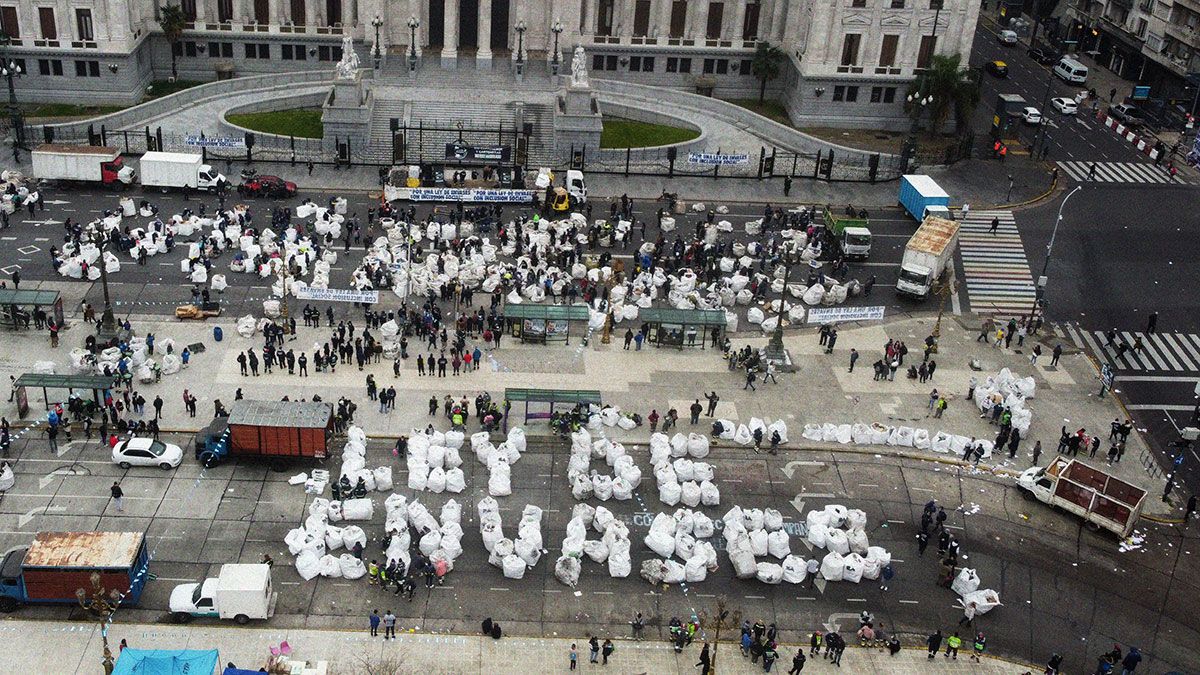One of the central points is the creation of an environmental tax that will be paid by the producers responsible for the containers placed on the market and the generation of their own collection and reuse system.
With the proceeds from the payment of this fee, a trust will be created, administered by the public bank that will serve to strengthen public packaging management systems, promote the inclusion of recyclers, promote the recovery of packaging and promote development. ecodesign, among other objectives.
In this context, AmCham expressed: “Given the presentation of this initiative, and its treatment in commissions, the United States Chamber of Commerce in Argentina (AmCham) expresses its concern about an anachronistic proposal, which does not solve the underlying problem and that, on the contrary, generates a greater tax burden on the productive fabric, without a clear consideration for funds that this program would generate through the establishment of a new rate to offset the expenses that the public waste management system would require in the future, calling into question even the federal nature of the norm. “
On the other hand, they affirmed their commitment to caring for the environment and the need “for an adequate regulatory framework for the treatment and handling of the containers used in the commercialization of all types of products, which is harmonious with international standards and compatible with the technology available in the country “. On the other hand, they highlighted their support for inclusive recycling schemes, “but when these are feasible and logical, and especially when they consider incentives and benefits for those companies that use recyclable materials in their packaging and / or invest in technology to improve collection and reuse “.
The weak points of the Law marked by Amcham are: “qthat does not allow obliged subjects to clearly opt for local management systems implemented and financed by the private sector, under the control and supervision of the enforcement authority“and adds:” Another of the weaknesses of the project is the calculation of the environmental tax, whose formula is based on the sale price (up to 3%), or on the weight of the material, without taking into account the cost associated with the management system itself, and what is worse, whose administration falls on a trust administered by the state, without clear allocation guidelines, especially in a federal waste treatment model, which is why various sectors have requested the creation of a mixed public-private entity with public representation but also of the producers and recuperators, the manufacturers of containers and the civil society “.
They harshly stated: “The logical thing, if we all agreed, would be for the norm to establish the extended and shared responsibility of the producer, to set gradual recovery goals at the national level, differentials by type of material and to incentivize the subjects obliged to organize to achieve these goals within a reasonable and progressive implementation time “.
Amcham highlights that the project is questionable because of its “constitutional weakness“by” violating the rights of the provinces, basically because it creates a fund managed by a 100% public administration trust, an alchemy that has unfortunately become common in legislative practice, and grants the Nation discretionary powers to distribute public money to municipal and social actors, bypassing the provincial authorities, and moving away from the most basic parameters in terms of ethics and transparency “.
The companies point to the Executive Power in the creation of new taxes (in which it is estimated will be of the order of 3%) “we know that the payment of new taxes is an easy way, and not effective. “
Finally, they warned of the consequences that the measure may have in the industry: “they obstruct the generation of jobs, limit new investments, tend to price increases and create a hostile, restrictive and unpredictable regulatory environment”, highlighting the need to stay low. free enterprise rules.
Source From: Ambito
David William is a talented author who has made a name for himself in the world of writing. He is a professional author who writes on a wide range of topics, from general interest to opinion news. David is currently working as a writer at 24 hours worlds where he brings his unique perspective and in-depth research to his articles, making them both informative and engaging.




